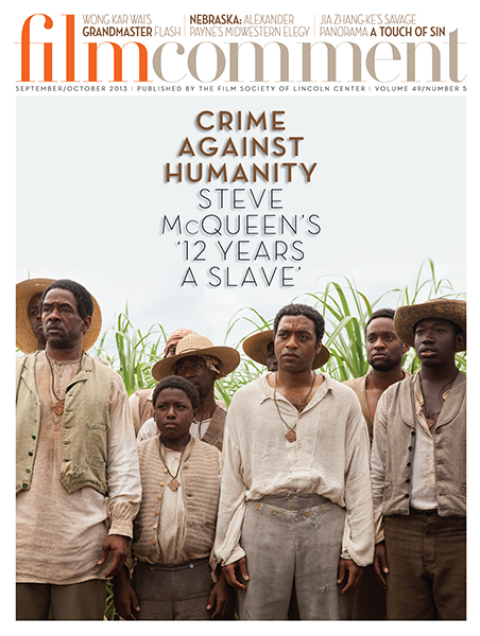
It’s hard to imagine a more magical wedding than the one that opens Mother of George. Seductively filmed and crowded with richly dressed family and friends, it’s sensual, spiritual, dreamlike. Nigerian immigrants living in Brooklyn, the bridal couple are handsome middle-aged Ayodele (Isaach De Bankolé) and beautiful younger Adenike (Danai Gurira), whom he has brought over from Africa and with whom he is deeply in love. To the accompaniment of ethereal music, blessings flow—promises of health, longevity, and fertility. “Nothing will ruin you two,” the overjoyed couple are told. They will be like unbruised fruit. Life will be as sweet as pineapple.
The wedding-night scenes are filled with the saffron yellow and lush blues that will become dominant colors in the film’s palette, expressing the warmth and sorrow that will soon fill their lives. Ayodele and Adenike enjoy the rhythms of daily life among their Yoruba community; he owns a restaurant, where he employs his brother Biyi (Tony Okungbowa), while she looks after their household. But when Adenike fails to become pregnant, the promise of fertility unfulfilled, she comes under mounting pressure from her mother-in-law (Bukky Ajayi) to take steps that end up filling her with anguish. The script, by the playwright Darci Picoult, is about the choices we make in our relationships, and the corrosiveness of secrets, and Gurira and De Bankolé give electrifying performances as a couple whose trust in each other is wrecked by their insecurities and communication failures.
Bradford Young’s cinematography is sensual and hypnotic, with dramatically shallow depth of field and strikingly off-kilter compositions. The poetic visuals create a disorienting sense of being at once immersed in the characters’ world and kept at a distance. In the cool light of the Brooklyn streets, Adenike is sometimes seen with her more assimilated friend Sade (Yaya DaCosta Alafia), but passersby remain ghostly blurs. Some scenes are filmed through windows or transparent curtains, and much of a fraught discussion between Adenike and Ayodele is viewed in the reflection of a mirror, as if they are struggling to hear each other while underwater.

The camerawork conveys something particular about dense urban environments—the sense of parallel worlds being always near at hand. Young also shot Andrew Dosunmu’s moody debut feature, Restless City (11), an evocatively impressionistic but slighter story set in Harlem about a doomed aspiring musician from Senegal and the prostitute he loves. Both soundtracks incorporate Richard Strauss’s haunting “Four Last Songs,” but in Mother of George, where it is heard on the couple’s transcendent wedding night and again later as tragedy looms, the solo soprano’s mysterious, soaring line resonates more powerfully with the narrative.
This is partly because Mother of George is primarily Adenike’s story. Although she lovingly cares for her husband and dresses modestly, she is also fiercely independent. She bluntly tells Ayodele that she longs to earn her own money, and as the months pass without a pregnancy we see her on the phone, presumably speaking to her mother back home, exclaiming: “But why? Why is it always the woman?” She both resents the blame that is placed on her shoulders and yearns to please. Her deepest fear—that her husband will take another woman—and her desperate solution stem from ancient patriarchal conventions, but any woman could relate to her stress and feeling of isolation.
Throughout Mother of George Adenike is costumed in gorgeously patterned traditional dresses that are a vibrant element in the film’s visuals. Accentuating her body as she climbs stairs or crosses bustling streets, sometimes filmed in slow motion, they become poignantly expressive, like Maggie Cheung’s cheongsams in In the Mood for Love. During a heartrending encounter outside her husband’s restaurant at night, Dosunmu’s heroine is resplendent in clothing embellished with large shimmering polka dots that resemble gold and silver coins, recalling the money that was showered on her at her wedding. She may no longer feel as treasured as she did then, but the blurred lights of the surrounding city seem to reflect her radiance, and that of her loved ones.








